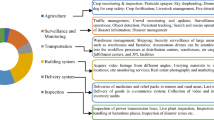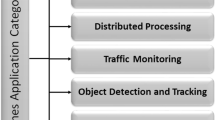Abstract
Mobile robot navigation has been a current issue in the most recent two decades. Mobile robots are necessary to explore in obscure and dynamic situations. To solve the aforementioned issues an extended Kalman filter (EKF) and adaptive Krill Herd network fuzzy inference system (AKH-NFIS) techniques are proposed for the self-sufficient portable robot route. This is in charge of avoidance of obstacles in an obscure static and dynamic environment. Initially, the start and goal position will be set and the obstacles identified in front of the robot will be checked using the sensor. This sensor captures the environmental information around the mobile robot. Subsequently, to deal with the filtering problem of sensor data, EKF will be used. By EKF more accurate position estimation will be obtained by using dynamic information of data. Subsequently, the obstacle distances from the robot and the obstacle avoidance angle are calculated and fed as input to the training dataset. This training data set trains AKH-NFIS controller obtained by designing a Krill herd optimization algorithm adaptive network fuzzy logic-based navigation controller. The left wheel velocity and right wheel velocity are the output from the proposed system. The robustness of the proposed navigation controller will be assessed by exploring the mobile robot in various conditions. The experimental result demonstrates that our proposed strategy outperforms by correlation with existing strategies.












Similar content being viewed by others
References
Wai, R.-J., & Lin, Y.-W. (2013). Adaptive moving-target tracking control of a vision-based mobile robot via a dynamic petri recurrent fuzzy neural network. IEEE Trans. Fuzzy Systems, 21(4), 688–701.
Pandey, A., & Parhi, D. R. (2014). MATLAB simulation for mobile robot navigation with hurdles in cluttered environment using minimum rule-based fuzzy logic controller. Procedia Technology, 14, 28–34.
Mac, T. T., Copot, C., & Tran, D. T. (2016). De Keyser R 2016 Heuristic approaches in robot path planning: A survey. Robotics and Autonomous Systems, 86, 13–28.
Algabri, M., Mathkour, H., Ramdane, H., & Alsulaiman, M. (2015). Comparative study of soft computing techniques for mobile robot navigation in an unknown environment. Computers in Human Behavior, 50, 42–56.
Deepak, B. B. V. L., Parhi, D. R., & Raju, B. M. V. A. (2014). Advance particle swarm optimization-based navigational controller for mobile robot. Arabian Journal for Science and Engineering, 39(8), 6477–6487.
Pandey, A., & Parhi, D. R. (2017). Optimum path planning of mobile robot in unknown static and dynamic environments using Fuzzy-Wind Driven Optimization algorithm. Defence Technology, 13(1), 47–58.
Mohanty, P. K., & Parhi, D. R. (2014). A new intelligent motion planning for mobile robot navigation using multiple adaptive neuro-fuzzy inference system. Applied Mathematics & Information Sciences, 8(5), 2527.
Pandey, A., Sonkar, R. K., Pandey, K. K., & Parhi, D. R. (2014). Path planning navigation of mobile robot with obstacles avoidance using fuzzy logic controller. In 2014 IEEE 8th international conference on intelligent systems and control (ISCO) (pp. 39–41). IEEE, 2014.
Meléndez, A., & Castillo, O. (2013). Evolutionary optimization of the fuzzy integrator in a navigation system for a mobile robot. In O. Castillo, P. Melin, & J. Kacprzyk (Eds.), Recent advances on hybrid intelligent systems. Studies in Computational Intelligence (Vol. 451, pp. 21–31). Berlin, Heidelberg: Springer.
Farooq, U., Amar, M., Asad, M. U., Hanif, A., & Saleh, S. O. (2014). Design and implementation of neural network based controller for mobile robot navigation in unknown environments. International Journal of Computer and Electrical Engineering, 6(2), 83.
Kayacan, E., Kayacan, E., Ramon, H., & Saeys, W. (2013). Adaptive neuro-fuzzy control of a spherical rolling robot using sliding-mode-control-theory-based online learning algorithm.". IEEE Transactions on Cybernetics, 43(1), 170–179.
Algabri, M., Mathkour, H., & Ramdane, H. (2014). Mobile robot navigation and obstacle-avoidance using ANFIS in unknown environment. International Journal of Computer Applications, 91, 14.
Pandey, A., Kumar, S., Pandey, K. K., & Parh, D. R. (2016). Mobile robot navigation in unknown static environments using ANFIS controller. Perspectives in Science, 8, 421–423.
Faisal, M., Hedjar, R., Sulaiman, M. A., & Al-Mutib, K. (2013). Fuzzy logic navigation and obstacle avoidance by a mobile robot in an unknown dynamic environment. International Journal of Advanced Robotic Systems, 10(1), 37.
Sanchez, M. A., Castillo, O., & Castro, J. R. (2015). Generalized type-2 fuzzy systems for controlling a mobile robot and a performance comparison with interval type-2 and type-1 fuzzy systems. Expert Systems with Applications, 42(14), 5904–5914.
Castillo, O., & Melin, P. (2014). A review on interval type-2 fuzzy logic applications in intelligent control. Information Sciences, 279, 615–631.
Rezaee, H., & Abdollahi, F. (2014). A decentralized cooperative control scheme with obstacle avoidance for a team of mobile robots. IEEE Transactions on Industrial Electronics, 61(1), 347–354.
Pothal, J. K., & Parhi, D. R. (2015). Navigation of multiple mobile robots in a highly clutter terrains using adaptive neuro-fuzzy inference system. Robotics and Autonomous Systems, 72, 48–58.
Parhi, D. R., & Mohanty, P. K. (2016). IWO-based adaptive neuro-fuzzy controller for mobile robot navigation in cluttered environments. The International Journal of Advanced Manufacturing Technology, 83(9–12), 1607–1625.
Mohanty, P. K., & Parhi, D. R. (2015). A new hybrid intelligent path planner for mobile robot navigation based on adaptive neuro-fuzzy inference system. Australian Journal of Mechanical Engineering, 13(3), 195–207.
Mohanty, P. K., & Parhi, D. R. (2015). A new hybrid optimization algorithm for multiple mobile robots navigation based on the CS-ANFIS approach. Memetic Computing, 7(4), 255–273.
Wang, D., Yuhang, H., & Ma, T. (2020). Mobile robot navigation with the combination of supervised learning in cerebellum and reward-based learning in basal ganglia. Cognitive Systems Research, 59, 1–14.
Ponce, H., Moya-Albor, E., Martínez-Villaseñor, L., & Brieva, J. (2020). Distributed evolutionary learning control for mobile robot navigation based on virtual and physical agents. Simulation Modelling Practice and Theory, 102, 102058.
Kim, C., & Won, J.-S. (2020). A fuzzy analytic hierarchy process and cooperative game theory combined multiple mobile robot navigation algorithm. Sensors, 20(10), 2827.
Zhang, Y., Zhang, C.-H., & Shao, X. (2021). User preference-aware navigation for mobile robot in domestic via defined virtual area. Journal of Network and Computer Applications, 173, 102885.
Chen, C.-H., Lin, C.-J., Jeng, S.-Y., Lin, H.-Y., & Cheng-Yi, Yu. (2021). Using ultrasonic sensors and a knowledge-based neural fuzzy controller for mobile robot navigation control. Electronics, 10(4), 466.
Kowalski, P. A., & Łukasik, S. (2015). Experimental study of selected parameters of the krill herd algorithm. In Intelligent Systems' 2014 (pp. 473–485). Cham: Springer.
Karaboga, D., & Kaya, E. (2019). Training ANFIS by using an adaptive and hybrid artificial bee colony algorithm (aABC) for the identification of nonlinear static systems. Arabian Journal for Science and Engineering, 44(4), 3531–3547.
Pal, D., & Bhagat, S. K. (2020). Design and analysis of optimization based integrated ANFIS-PID controller for networked controlled systems (NCSs). Cogent Engineering, 7(1), 1772944.
Ibrahim, A. A., Zhou, H.-b, Tan, S.-x, Zhang, C.-l, & Duan, J.-a. (2020). Regulated Kalman filter based training of an interval type-2 fuzzy system and its evaluation. Engineering Applications of Artificial Intelligence, 95, 103867
Author information
Authors and Affiliations
Corresponding author
Ethics declarations
Conflict of interest
The authors declare that they have no conflict of interest.
Additional information
Publisher's Note
Springer Nature remains neutral with regard to jurisdictional claims in published maps and institutional affiliations.
Rights and permissions
About this article
Cite this article
Das, M.S., Samanta, A., Sanyal, S. et al. AKH-NFIS: Adaptive Krill Herd Network Fuzzy Inference System for Mobile Robot Navigation. Wireless Pers Commun 120, 3389–3413 (2021). https://doi.org/10.1007/s11277-021-08619-5
Accepted:
Published:
Issue Date:
DOI: https://doi.org/10.1007/s11277-021-08619-5




